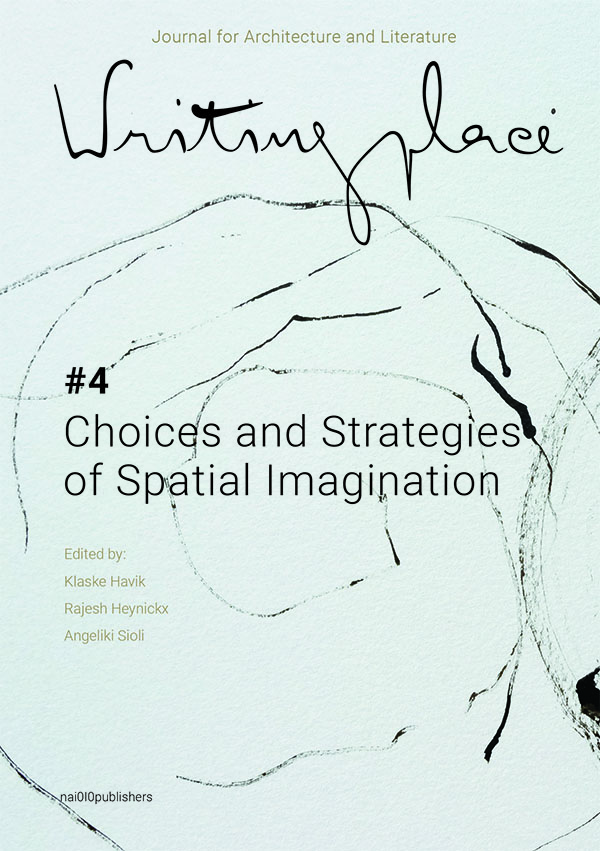Forms of Utopia
The Social and Spatial Forms of We and Metropolisarchitecture
DOI:
https://doi.org/10.7480/writingplace.4.5277Abstract
“Forms of Utopia” is part of a larger research investigating critical and speculative methods used in architectural and literary utopian and dystopian works of the 20th century. It presents one of several case study pairings featuring a work of architectural and literary fiction, which were created within a similar historical and societal context and which deal with similar issues. The text investigates and juxtaposes two fictional worlds created in the first part of the 20th century, namely Ludwig Hilberseimer’s architectural proposal Metropolisarchitecture, and Yevgeny Zamyatin’s literary work We. Taking into consideration various issues which arise while examining works from two different fields, a comparative method was devised which combines approaches taken from both the literary and architectural field. The developed method is based on a combination of Carline Levine’s approach proposed in her book Forms: Whole, Rhythm, Hierarchy, Network (Princeton UP, 2015) and an architectural typological analysis. By using this method, the text examines various forms and patterns of spatial and social experience which are described in the works and through which the utopian and dystopian worlds are structured. Focusing on two main types of forms identified by Levine – namely bounded wholes and rhythms – the text distills common threads, investigates how the authors propose and generate a built and social environment, and how this environment is ideologically and critically charged. While examining the various social and spatial forms which are used to build both fictional worlds, the text also explores the fact that, even though the two worlds are sometimes based on same spatial forms, one author views his project as utopian while the other proposes a dystopian future.
References
Anderson, ‘An End to Speculation’, op. cit. (note 11), quoting Ludwig Hilberseimer, Enfaltung unf Planungsidee (Berlin: Ullstein, 1963), 20.
Aureli, Pier Vittorio. "In Hilberseimer’s Footsteps’." Metropolisarchitecture and selected essays, edited by Richard Anderson 2 (2012): 334-363.
Caroline Levine, ‘Introduction: The Affordances of Form’, in: Caroline Levine, Forms: Whole, Rhythm, Hierarchy, Network (Princeton: Princeton University Press, 2015), 14-35.
George Orwell, 1984 (London: Vintage Classics, 2018).
Hilberseimer. Metropolisarchitecture and selected essays. Graduate School of Architecture, 2012.
Ludwig Hilberseimer, ‘Metropolisarchitecture’, in: Richard Anderson (ed.), Metropolisarchitecture and Selected Essays (New York: GSAPP Books, 2012).
Manfredo Tafuri, Architecture and Utopia, quoted in: Anderson, ‘An End to Speculation’, op. cit. (note 11), 62.
Pier Vittorio Aureli, ‘In Hilberseimer’s Footsteps’, in: Richard Anderson (ed.), Metropolisarchitecture and Selected Essays (New York: GSAPP Books, 2012)
Richard Anderson, ‘An End to Speculation’, in: Anderson, Metropolisarchitecture and Selected Essays, op. cit. (note 1), 24.
Yevgeny Zamyatin, We, translated by Hugh Aplin (Richmond: Alma Books Ltd, 2009).
Downloads
Published
How to Cite
Issue
Section
License
Copyright (c) 2020 Jana Culek

This work is licensed under a Creative Commons Attribution 4.0 International License.



